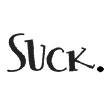Newsweek is a newsweekly magazine that was once the second-largest newsweekly in the United States.
The magazine is owned by IBT Media, owners of the International Business Times and a company with connections to a controversial pastor named David Jang. It has gone through several owners in recent years: The site had been bought from The Washington Post Co. in 2010 by Sidney Harman, who quickly merged it with Barry Diller‘s Internet company IAC, owner of the news site The Daily Beast. Harman ended his investment in the magazine in 2012, and IAC sold it to IBT in 2013.
Newsweek’s print edition folded in December 2012, replaced by a subscription-based digital product in conjunction with The Daily Beast, as the company was renamed NewsBeast. It planned to initially offer its website for free without ads, eventually introducing both ads and a metered-model paywall, which was revamped in 2014. Newsweek relaunched its print edition in March 2014, charging $7.99 per copy with a circulation of 70,000, compared with its peak circulation of 3.3 million. The revamped print edition makes its money primarily from subscriptions and newsstand sales rather than advertising. Newsweek had a newsroom of about 40 in early 2014 and planned to push its size to 50 by the end of the year.
In addition to its U.S. edition, Newsweek also published three English-language editions — for the Atlantic, Asia, and Latin America — and it is the only newsmagazine with global, weekly local-language editions (twelve in all). In June of 2000, Newsweek International launched Newsweek In Arabic; in 2002, Newsweek launched Newsweek Select, distributed in Hong Kong and mainland China.
Newsweek was founded by Thomas J.C. Martyn, a former foreign editor at Time magazine, and was first published on February 17, 1933. The cover of its first issue (titled, at the time, “News-Week”) featured seven photographs from the week’s news. A subscription cost $4 for the year, and the magazine had a circulation of 50,000. In 1961, Newsweek was bought by The Washington Post Company, which maintained ownership of the magazine until August 2010.
Newsweek saw its circulation — and, thus, its subscription and ad revenue — decline steeply in its past several years. At the end of 2007, the magazine reduced its U.S. base rate from 3.1 million to 2.6 million. In July of 2009, Newsweek dropped to a base of 1.9 million. In January 2010, it dropped to 1.5 million.




 Some rights reserved.
Some rights reserved.